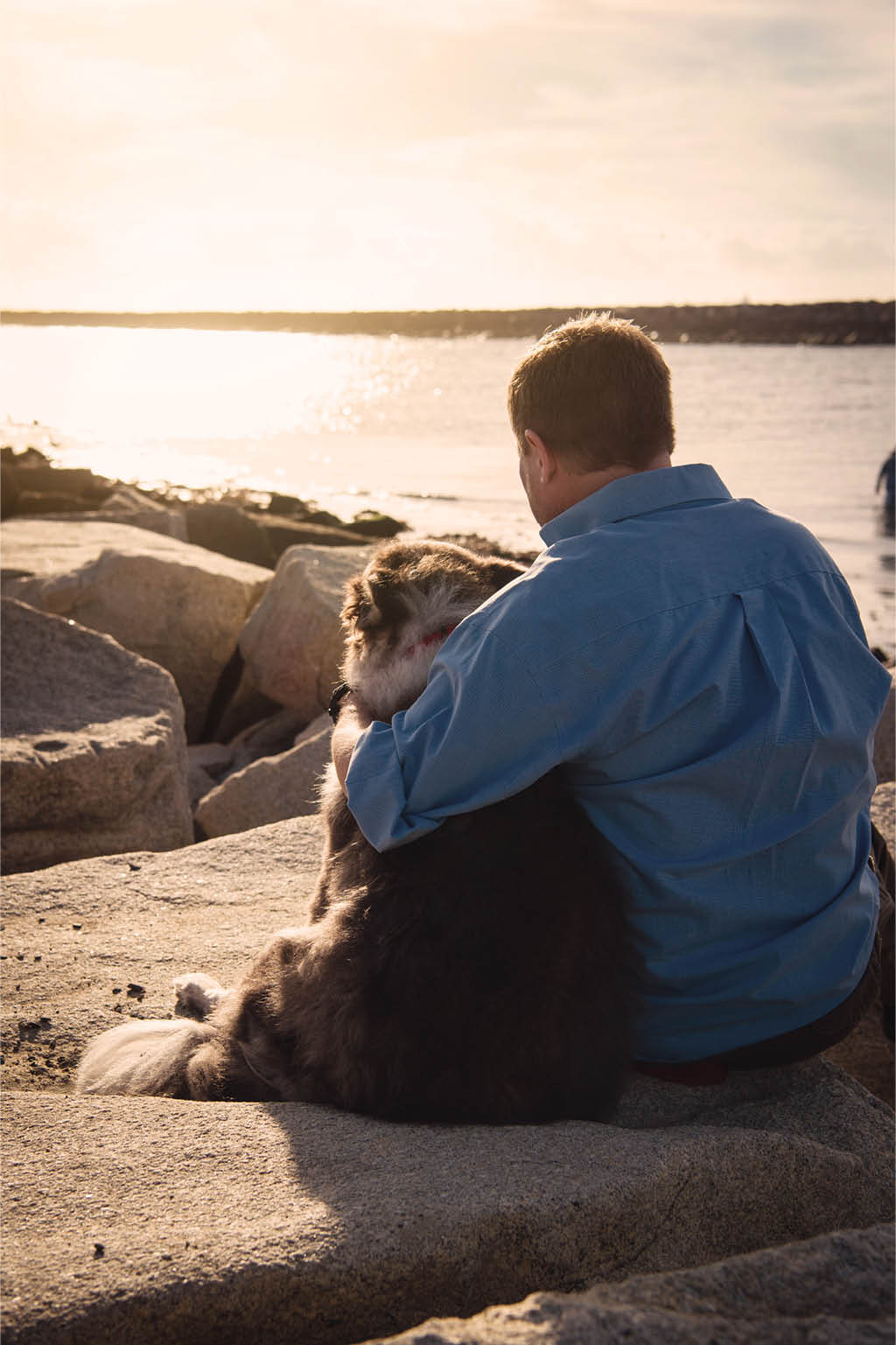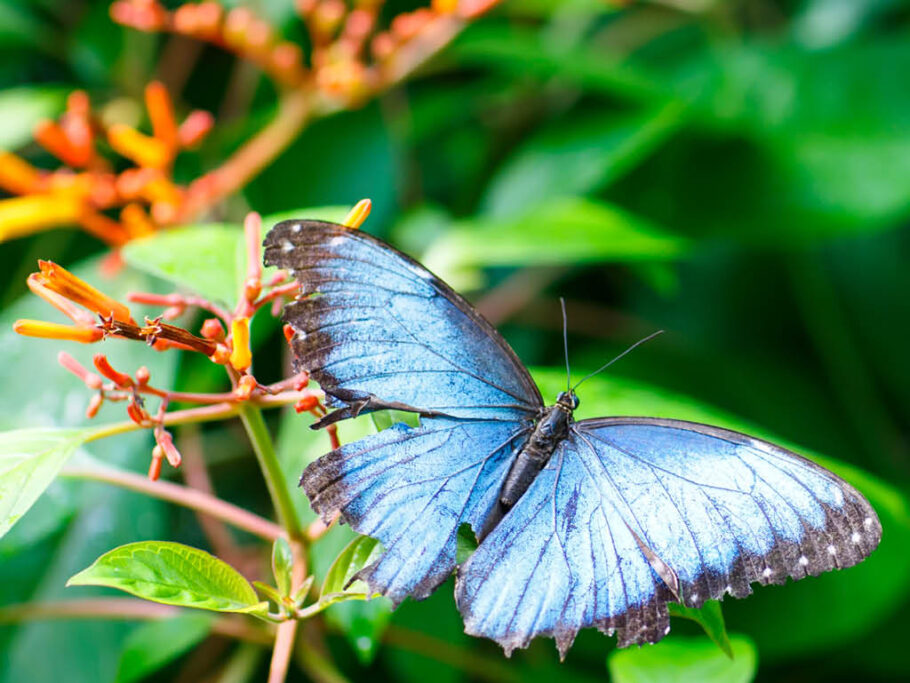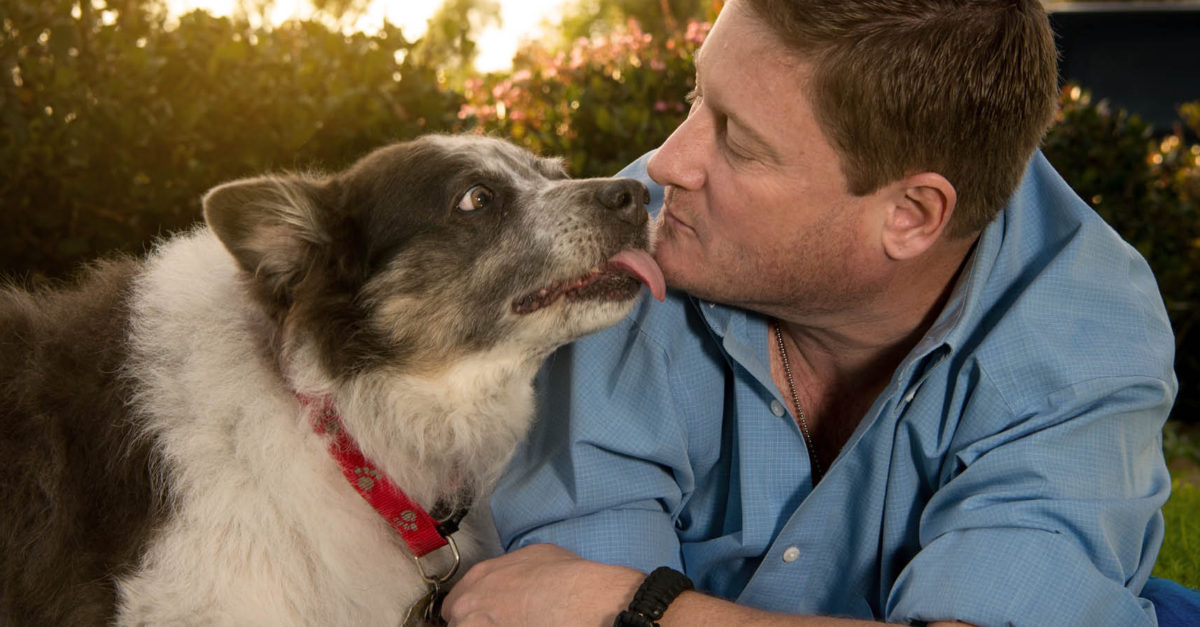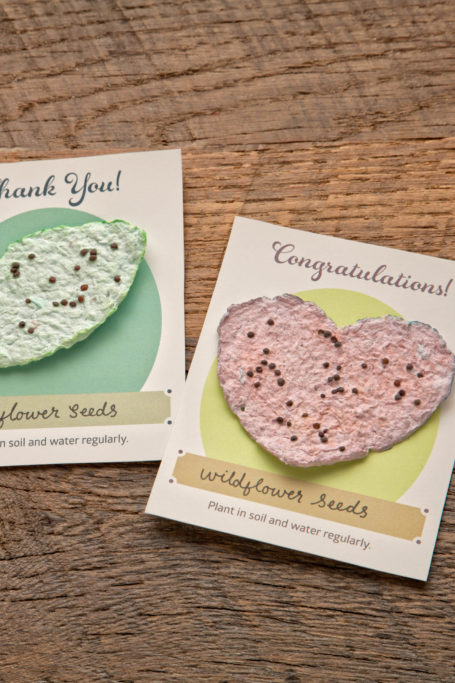Cultivating Companionship: The Mission of Pets For Vets
The bouts with anxiety seemed endless. Fear of interacting with other people was constant, almost paralyzing. Because of these experiences, Gordon felt completely isolated from the world and had very few friends.
Gordon, who served for ten years in the US Army, had a difficult time adjusting to post-military life—and, in fact, he was homeless for three years. He felt hopeless and desperately needed a lifeline.
Unfortunately, Gordon’s experience isn’t uncommon for US military veterans. Studies show that up to 20 percent suffer from PTSD. These struggles can plague any vet, regardless of race, age, or gender.
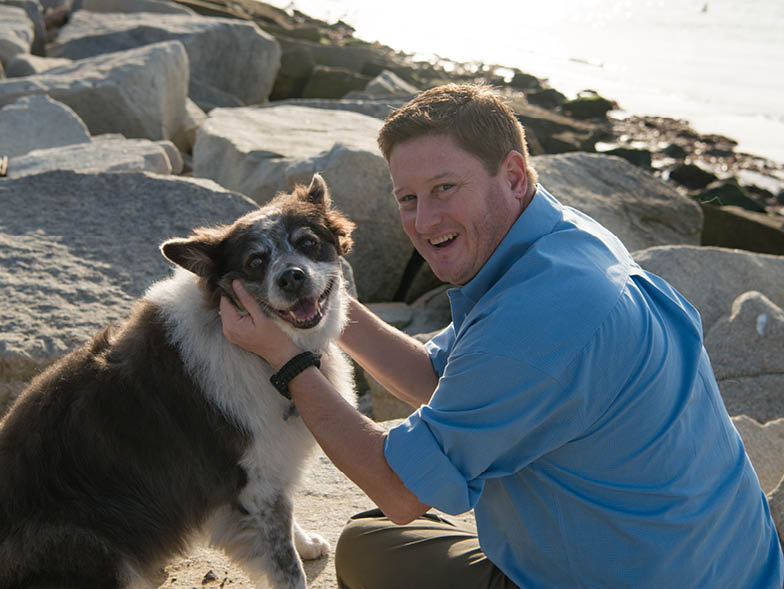
Clarissa Black wanted to help, and her path to doing so started in 2009, when she visited a Veterans Affairs facility in California with her dog Bear, a malamute mix. “Many of the veterans’ faces would light up as they interacted with Bear,” she recalls. “A few veterans even asked if they could take him home. In that moment, I wondered why therapy is only one hour, once a week, inside the walls of the VA. My hope was that having a trained companion animal on a permanent basis could be life-changing. I wanted this to be my way to say thank you to those who had given so much for our country.”
Clarissa was perfectly suited for this task, as her special bond with animals began at an early age. She was walking neighborhood dogs at age five and had rabbits, hedgehogs, and a cat as a child. Later, she earned a bachelor’s degree in animal science and a master’s degree in anthrozoology (the study of human animal interaction). She learned advanced training techniques while working with elephants and dolphins, and then she focused her animal-training expertise on canines, becoming a successful dog trainer.
Because of her experience, Clarissa was also well aware of the staggering numbers about the US pet population—over 6 million dogs and cats end up in shelters every year, and approximately 1.5 million are euthanized. She knew she had an opportunity to change the lives of both veterans and animals.
This prompted her to create her nonprofit organization, Pets for Vets, which matches shelter animals with veterans who may have traumatic brain injury or may be experiencing PTSD, anxiety, or depression. Today, Pets for Vets has chapters in thirty-five states and has helped to make over three hundred matches. Clarissa hopes to eventually have a chapter in all fifty states to help veterans across the country.
Their process is very thorough to ensure that a perfect match is made. A military veteran submits an application for an animal companion, and then a Pets for Vets representative arranges a meeting with the veteran to understand his or her personality, lifestyle, and physical and emotional needs.
Then the organization works with an area shelter to find an animal (almost always a dog) that will make for a perfect companion, taking into account the needs and personality of the animal as well. “That’s what makes us so different—it’s important to us that it’s the animal’s choice, too,” Clarissa notes. “We’re matchmakers, and we want both the veteran and the animal to be in a great relationship.”
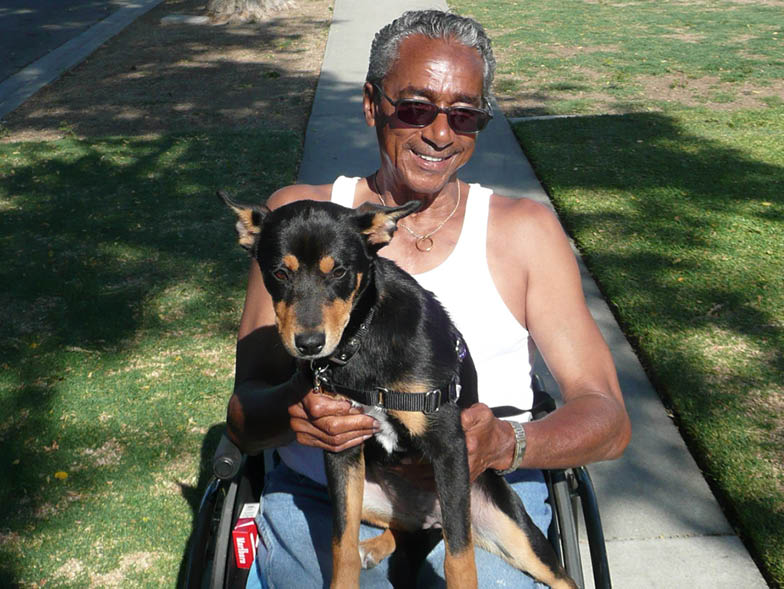
Such personalized matching was helpful for Davis, a Vietnam veteran who was in a wheelchair and getting occupational therapy when Clarissa met him. Because of this, Davis found himself spending a lot of time outside all alone.
Clarissa quickly sought to find a dog that would be his constant companion. She found Lady, a terrier mix that had been abandoned in an animal shelter suffering from intestinal parasites and kennel cough; she spent the next month nursing Lady back to health. She also began training Lady, which included making her comfortable around wheelchairs and crutches. As a result, an instant, loving connection formed between Davis and Lady—and a vet’s life and a rescue animal’s life were transformed.
Lady’s experience is representative of every dog’s at Pets for Vets. Once an animal companion is chosen, Pets for Vets adopts it. (“We don’t have dogs in waiting because we make specific veteran-animal matches,” Clarissa notes.) It lives in the home of a Pets for Vets trainer to work on the different behaviors and personalized training it will need to fit into its new home and ensure that the transition is seamless. The organization also makes sure the animal is healthy and has up-to-date immunizations, and it provides a welcome package, which includes a crate, bedding, grooming supplies, chew toys, a collar with ID, food, bowls, and medicine.
The end result is a special connection like no other. “Because of the way we get to know the veterans and the animals, pairing them together based on compatibility, and then using only positive-reinforcement, non-force-based training, it creates a bond based on trust and mutual respect.” This unique, carefully crafted matching system, created by Clarissa Black herself, is called the Super Bond™, providing each Pets for Vets recipient with an animal that is completely in tune with its human.
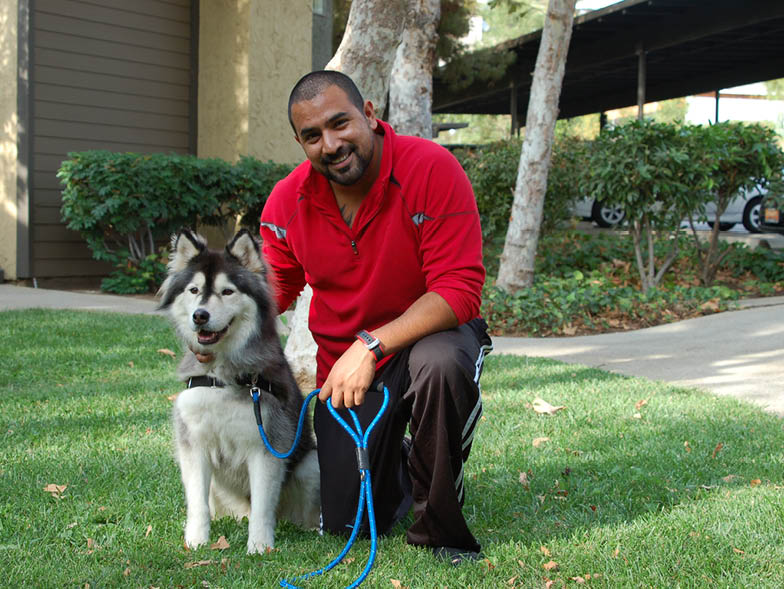
“This Super Bond is so important because it’s what is mitigating any symptoms of things such as PTSD or loneliness,” she continues. “In fact, we’ve had dogs start to offer behaviors veterans need that we actually haven’t trained them to do. We’ve had dogs that haven’t had nightmare training wake their veterans up during nightmares because they are so in tune and so well-matched with each other.”
Jose, a staff sergeant during Operation Iraqi Freedom and Operation Enduring Freedom, returned home injured—physically and mentally. Because of his PTSD, he suffered from frequent nightmares and flashbacks, was hypervigilant to noises, and avoided crowds. Pets for Vets paired him with a husky/malamute mix rescue dog. Jose’s dog, Ranger, is a calming presence, helps to keep his crowd anxiety in check, and is by his side to help him to sleep better.
Likewise, Casey, who served for four years as a navy marine specialist in Iraq and Afghanistan, suffered from PTSD and experienced frequent nightmares and flashbacks, which led to severe panic attacks. He was paired with a German Shepherd named Jazzy, who helps calm him when he has nightmares and is his constant companion. Today, Casey is more confident and social—so much so that he has gotten married and is now a father.
Ultimately, transformation happens with each match, as unconditional love is shared and recovery begins for both parties. Seeking an animal companion that could help him turn his life around, Gordon was paired with Suki, an Australian cattle dog mix, and they immediately bonded; when Suki first saw him, she jumped onto the couch, looked at him, gave him a kiss, and then laid down in his lap. He was smitten. Remarkably, on that first day together, Gordon met and talked to more people than he had the entire previous year. Suki helped ease his anxiety about going places, and served as his icebreaker for striking up conversation. Now he’s married, and he and his wife are looking for a house and discussing adopting a child. In short, he is once again living his life, as is his rescued animal companion.
That, ultimately, is the effect of Pets for Vets—changing lives one lick at a time.
For more info, visit petsforvets.com.
